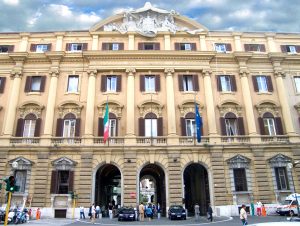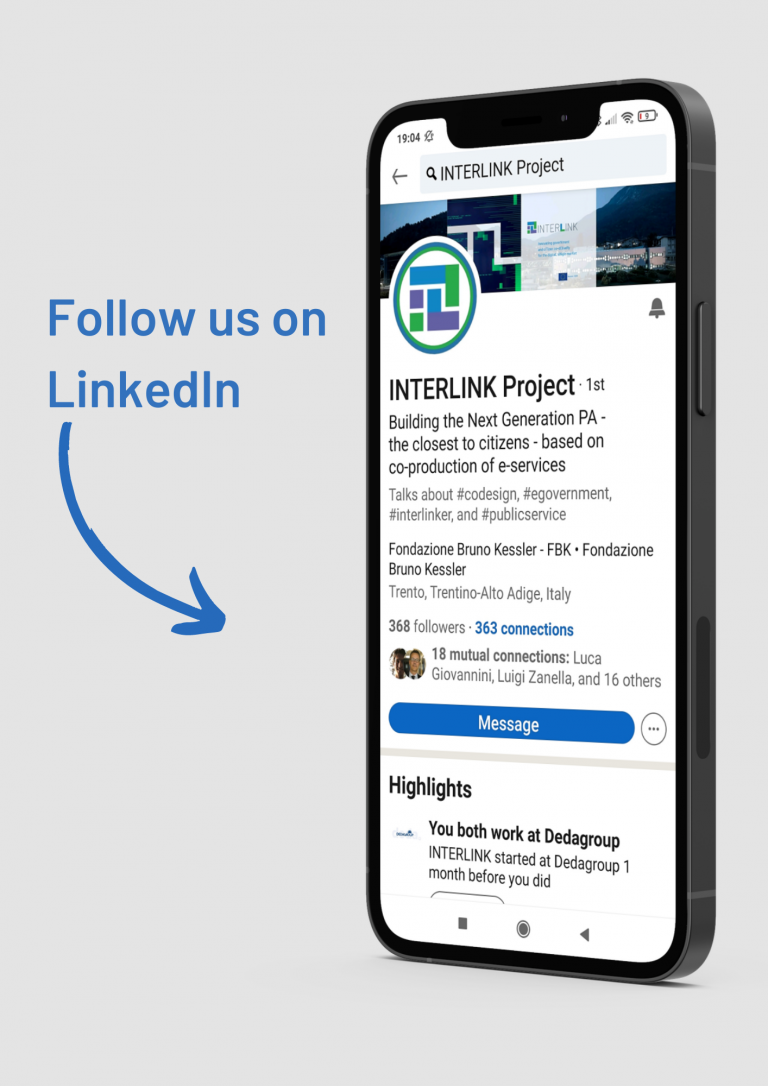We are happy to announce that our first event will take place online on November 4th, 2021 from 10:00 to 11:30 CEST. Join us if you want to start a conversation with the Governance for the future H2020 cluster and share with us innovations and solutions on the co-production of public services.
Yes, I want to start a conversation. Sign me in!
What is the goal?
Our goal is to showcase the first tech output of INTERLINK, to provide an initial overarching view of how a collaborative governance model shall be supported by the INTERLINK Platform. This deliverable is meant to provide a first list of high-level socio-technical requirements that will be used to guide the functional specification of the set of INTERLINKERs that will be described in the next steps.
We invited experts from other H2020-SC6-GOVERNANCE and DT-TRANSFORMATIONS projects to provoke discussion about the ecosystem we are building and to raise suggestions for the next steps of INTERLINK.
The agenda of the clustering event include:
Setting the scene
- Matteo Gerosa, Fondazione BRUNO KESSLER – Presenting the Interlink project among the GOVERNANCE FOR THE FUTURE cluster
- Taco Brandsen, RADBOUND UNI – Showcasing the white paper
- Pauli Misikangas, CLOUD’N’SCI – Interlink challenge: how to co-produce tech solutions for public services
Showcasing other H2020-SC6-GOVERNANCE-2020 projects
- mGov4EU – Mobile Cross-Border Government Services for Europe
- ACROSS – HPC Big Data Artificial Intelligence cross Stack platform towards Exascale
- inGOV – IPS holistic framework and ICT mobile tools that support IPS co-creation and governance
- Roberta Lotti, Italian Ministry of Economy and Finance | eTAPAS – Ethical Technology Adoption in Public Administration Services
Q&A Session: Panel discussion moderated by Diego Lopez, DEUSTO UNI
The event will go on streaming!
About the Interlink project
INTERLINK ambition is to define a new governance model for public-civic partnerships, building on top of existing approaches and best practices, and further develop them with a set of digital building blocks, called “INTERLINKERs”, that will implement the defined governance model and standardize the basic functionalities needed to enable private actors to cooperate in the delivery of a service (organization, communication, scheduling, monitoring, etc.). The main challenge is to develop a new governance model that combines elements of a “top-down” approach, in which the public administration provides high-quality, open, interoperable procedures that other parties can then adopt and re-use, and a “bottom-up” approach in which citizens and private actors co-produce services.
The first tech output of the INTERLINK H2020 Project is aimed at providing an initial overarching view of how a collaborative governance model shall be supported by the proposed INTERLINK Platform. Also, it integrates socio-technical requirements empirically elicited through end-users involvement with requirements related to the principles and guidelines of the new collaborative governance model supported by the project and with technical requirements and constraints related to the implementation of the platform and the INTERLINKERs.





